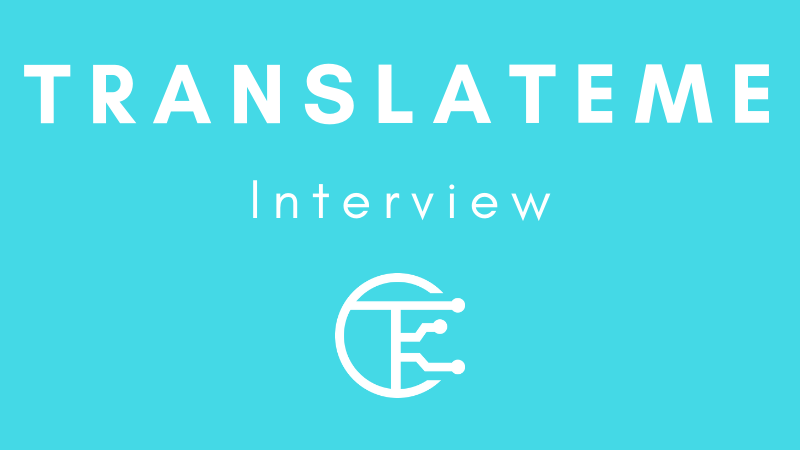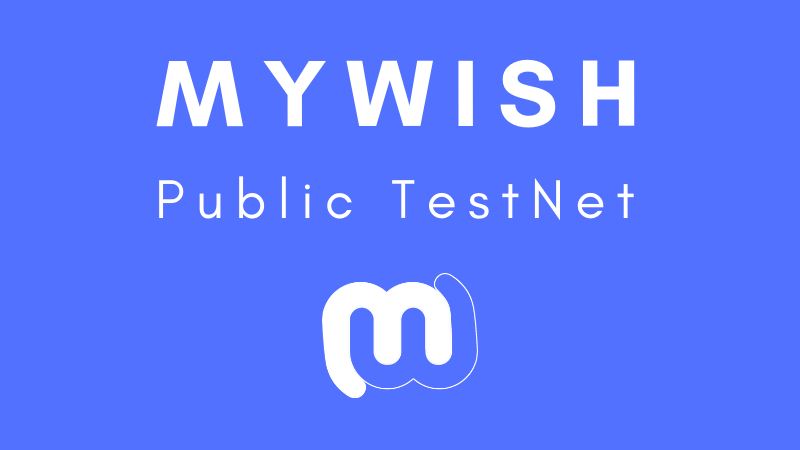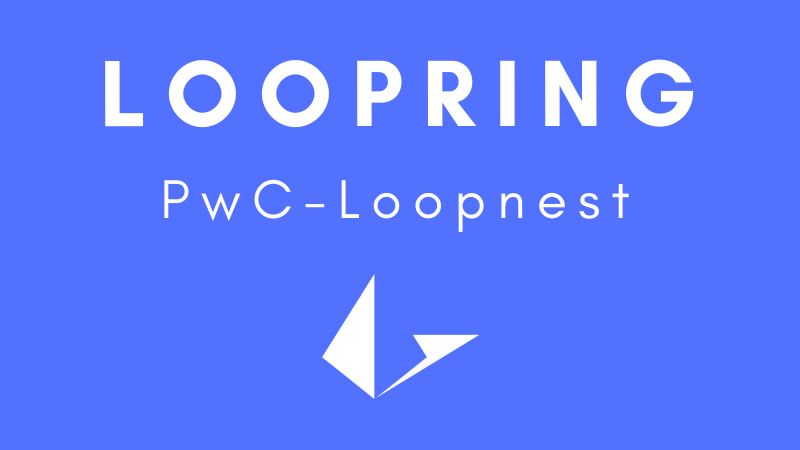
Mauritus-based TranslateMe is a blockchain-based translation service that first took shape when founder Ryan Lloyd became involved in a translation project. Lloyd ended up applying his curiosity towards adapting existing machine learning algorithms to offer an automated translation service across the world. NNT’s Colin Closser spoke with him recently from Mauritus.
Origins of TranslateMe
According to founder Ryan Lloyd, TranslateMe “is aiming to solve the issues with the translation industry.” Lloyd’s experience with translation services began with a project that involved translating content into multiple languages for a hotel in Mauritus, a country off the eastern coast of South Africa. Although translation was possible, high costs and a lack of available translation services outside the world’s most frequently used languages presented severe problems.
Lloyd reports that of the existing professional translation services, Microsoft Azure cloud-based translation services is the overall market leader by a thin margin, followed by one or two dedicated companies such as DeepL, who focus on 4-5 languages where they are the price leader. Lloyd recalls asking himself, “How difficult is it to actually do this yourself?” and with 10 years’ experience developing web software in South Africa, set about creating a trial.
Lloyd began by diverting resources from an Ethereum mining operation, as he reports that graphics cards are the best hardware to devote to creating translation algorithms. He then fed 1.7 million sentences into open-source machine learning algorithms, and after three weeks of computations from three Ethereum mining rigs, Lloyd got a French-English translation program up and running “with about 70 percent accuracy.” At this point, although his trial of creating an accurate translation engine with GPU mining rigs was a success, he realized that if he wanted to scale his trial to multiple languages, raising capital would be necessary to cover hardware and payroll costs.
Translation Services
“If we can decentralize the hardware and the contribution side via a rewards system mechanism, we could get a network to provide the resources required to offer the translation services for any platform,” Lloyd says. “Capital has been a part of this, but…the single biggest thing missing from any current translation platform is data. It’s why they [market leaders] only support 20 high-quality languages out of 200. They don’t have the data to process” less common languages, or those predominantly spoken-word languages that lack large databases of written material. As an example, Lloyd cites Afrikaans and Zulu, two of South Africa’s eleven official languages. “13 million people [in South Africa] speak Zulu, and it’s terribly translated on Google.” Lloyd wants to resource data via human contributions, incentivized via the TranslateMe token, as a way to “incentivize human data contributions for more obscure languages.”
In order for contributions to flow into the system, TranslateMe has been developing a wallet that is associated with a rewards system. Groups of people will be connected to a chat server with automatic translation. In this system, all chat messages are translated into each user’s language of choice, regardless of the original language the messages were typed in. Lloyd explains further, “In a basic form, this is a chat app with the ability for people to correct what the machine has produced.” Users will submit corrections to the translated chat for rewards. In this way, the machine is exposed to corrections and insight from language speakers, and users can earn TranslateMe tokens in return.
TranslateMe began with building a Telegram web app, and it aims to port the work over to the iOS/Android mobile operating systems. “My plan is to get this out there and see who is interested to work with us,” Lloyd explained, adding that the traditional business model of translation services gives TranslateMe a possible revenue stream that is not associated with a token sale. Lloyd specifically mentioned that he would like to see cryptocurrency project communities on Telegram using TranslateMe’s services to offer global chat in a unified language.
Target Users
Lloyd stated that “People that use practical platforms like chat systems” are the ideal users that TranslateMe wants to target at first. “Chat is the best form of data [for machine learning] because it’s highly structured.”
Lloyd says that TranslateMe is a hybrid system because “we are not just allowing people to contribute, we are paying people to contribute.” He further commented, “Google [Google Translate] has had a hybrid since 2015; in 2016 Google added neural networking, which is when their translation quality really started to improve. I don’t think we need to crunch as much data as Google to be successful.” According to Lloyd, this is because of TranslateMe’s algorithm, which “doesn’t just crunch data, but is self-correcting, and back-referencing,” meaning that it can go back and amend itself when high-quality user corrections are encountered.
NEO Blockchain
Lloyd states that the biggest reason for bringing his project to NEO “was to remove ourselves from the ICO category that was a complete joke. The first thing that NEO offered us was barriers to entry” allowing TranslateMe to present as a “serious platform.” “NEO has a better family-oriented network. Projects work together. We could get washed out on Ethereum, where it’s more of a free-for-all” amongst projects, Lloyd asserted. “From the starting point there was a clear waypoint for NEO which was to stay legit, stay as legal as possible” and Lloyd felt that there was more personal and community support available for this goal on NEO.
WIth regards to future plans for the NEO blockchain and the TME token, “It’s inevitable that we will have a side chain that is unique to the reward process,” but Lloyd maintained, “I don’t think we will come close to exceeding NEO’s capability anytime soon,” due to a claim system with bundled, on-demand payouts minimizing the transaction volume to support TranslateMe’s project.
Privacy
When asked how TranslateMe would handle the use of private chat logs and user-generated content, Lloyd responded, “I don’t have an answer for this right now.” He elaborated that information submitted will have to go to a central storage facility, whether a TranslateMe server or into cloud storage. In the future, Lloyd predicts that his project will use decentralized storage. “After feeding [the data] and training [the algorithm], we don’t need to use data anymore,” Lloyd said, which would allow TranslateMe to offer greater privacy to individual users in the future. “I envision a distributed algorithm with distributed data storage.”
“Right now, we can convert ETH rigs [specialized computers with multiple graphics cards] to servers for specific offerings. This will require connecting software [the TranslateMe chat app] to onboard people,” but Lloyd maintains that TranslateMe is currently “very quick to utilize hardware and create what we need.”
Future of TranslateMe
With regards to what has to be built out for the future, an “ICO is needed for funding to build an infrastructure network to hold these machines together to feed data and handle translation requests.” That software hasn’t been developed yet. Lloyd mentioned that some ICO investors were donating ETH rigs instead of cash; TranslateMe “[needs] about a 100-card facility” to support 10 languages. “Rigs aren’t needed all the time,” elaborated Lloyd. The first step to supporting a new language is to “resource standard translation documents and feed them into the network,” and the second is to offer support via chat apps.
Lloyd predicts that in “6 months with 100 cards” he will be able to move the chat apps “away from Google’s API and onto our own translation facility” to get started.
TranslateMe Team
With regards to machine learning, Lloyd said that he has three “fantastic” 4th year students working as specialized interns, focused on machine learning. Citing his experience with another project, BlockMesh, “I haven’t spent a dime on marketing” TranslateMe, Lloyd claimed, but has a close team working in South Africa. “I’m not in a rush because I believe once I get this Telegram app up” the exposure will be more tangible and also offer data for the project. “There’s no point in marketing something [until] I have a tangible product,” Lloyd offered.
Lloyd is looking to fill two positions within TranslateMe in the near future: a senior machine learning specialist, as well as a senior blockchain expert to “help us with specific software required to reward users.” To pay their salaries and fill the position, Lloyd will require that funds are raised first.
Summary
“We really want to give an alternative to what is currently on the market for translation…the currently available services for translation is almost monopolized, so costs are so high it’s not accessible. We want to bring translation services to the world. Language bridges all types of words, business, education, tourism, entertainment,” Lloyd explained.
Lloyd summarized his competition in the translation space by stating that while there is massive potential for a fully functioning translation solution, “the data isn’t there” to support such a solution, and current competitors are “too expensive.”
TranslateMe’s token sale is currently in the private sale stage until the end of December.







About The Author: Colin Closser
Colin Closser, M.D., was a speaker at the first NEO DevCon in San Francisco. A devoted contrarian, he has managed the improbable: a peaceful and healthy life, despite holding a medical degree. He aspires towards the wisdom of Michael Lewis and Nassim Nicholas Taleb.
More posts by Colin Closser